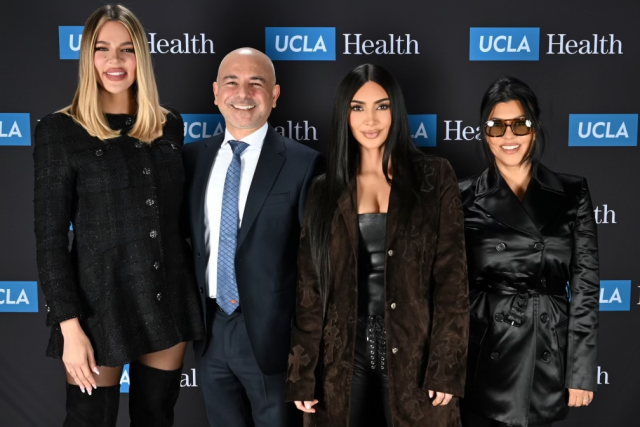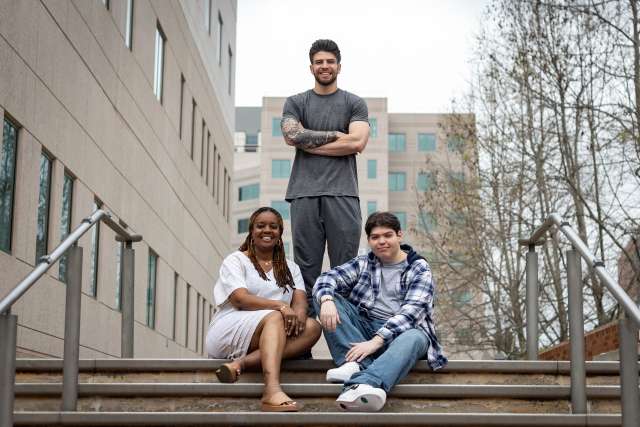Angelica Zen?is a resident physician and Alice Kuo is an associate professor of internal medicine and pediatrics at the David Geffen School of Medicine at UCLA. This op-ed appeared in the Washington Post.
“Do you have guns in the home?” It’s a standard question pediatricians ask patients and their parents, an entry into a conversation about storage and safety.
“Of course not — we don’t believe in that,” answered one mother who came to our practice with her 7-year-old.
Her son looked up from his iPad and grinned. “But Bobby’s dad has a really cool gun! Bobby showed it to me last week.”
“What do you mean?” his mother asked. “A toy gun?”
“No, a real one!” he boasted, before returning to his game. His mother sat in wide-eyed silence.
When a Florida pediatrician asked the same question — “Do you have guns in the home?” — during a checkup in 2010, the reply from a mother of three was sharp: None of your business. She objected to the query as “very invasive,” complaining to her local newspaper, “Whether I have a gun has nothing to do with the health of my child.”
And so began what’s come to be known as the Docs vs. Glocks dispute. In 2011, after a lobbying push by the National Rifle Association, Florida passed the Firearm Owners’ Privacy Act, restricting physicians from asking about gun ownership and from counseling about gun safety in routine appointments. Potential penalties include fines, suspension and loss of a medical license. A federal judge blocked the law as an unconstitutional restriction of doctors’ speech. Then an appeals court panel overturned the ruling, emphasizing patients’ rights to own guns and to privacy.
This Florida case is just the latest example of how the politics of guns have affected physicians’ ability to bring science to bear on what experts can see plainly: That gun violence is a public health issue. The full U.S. Court of Appeals for the 11th Circuit is now preparing to hear the case, and legislators in at least 12 states have expressed interest in similar bills. So it’s worth correcting what lawmakers and the court panel misunderstand about the doctor-patient relationship and about the relevance of firearms to pediatric care — in a country where more than 2 million children live in homes with unsecured guns.
First, there’s the suggestion that a doctor merely asking about guns infringes on the right to bear arms, because of how much power doctors supposedly have over patients. The court panel wrote: “When a patient enters a physician’s examination room, the patient is in a position of relative powerlessness. The patient must place his or her trust in the physician’s guidance and submit to the physician’s authority.” To support this contention, the court cited a 1994 law review article that describes how the doctor-patient relationship forces patients to “suspend their critical faculties” and limits their “ability to question physicians and redirect the course of a conversation.”
Most doctors nowadays would laugh at that idea. Perhaps there was a hint of truth to it in 1994 — two years before WebMD went live, and when less than 12 percent of U.S. households had Internet access. But long gone are the days when whatever a doctor said was law. Today, patients and their families are active participants in their medical care. They do their Internet research and come in with long lists of questions. And they don’t hesitate to make their views known, in the exam room and on Yelp, when they aren’t satisfied with the answers.
Rather than trying to get the parents who come to our practice to submit to our authority, we try to build partnerships with them based on mutual trust and a shared interest in the well-being of their children. Sometimes we and the parents disagree — about vaccines, for instance. But we talk through their questions and concerns and try to come up with an approach everyone is comfortable with. We might settle on a plan to space out vaccinations over a longer period of time, say, but to make sure a child is caught up by kindergarten.
We wouldn’t instruct gun-owning families to give up their firearms, nor would we expect them to listen to us if we did. But we and the parents have a mutual interest in preventing gun accidents involving their children. That’s what we want to discuss. The point is not to pass judgment or to chastise people for their practices. It is to ensure that our patients, the children, have long, healthy lives.
Florida’s law allows an exception to the restrictions on talk about guns if a doctor “in good faith believes that this information is relevant to the patient’s medical care or safety, or the safety of others.” In the latest legal brief, filed with the court on Monday, the state reiterated that doctors needn’t worry about disciplinary action as long as they stick to good-faith inquiries.
What does that really mean? What if a parent, like the mother in Florida, declares that “Whether I have a gun has nothing to do with the health of my child”?
It would be odd if the lawmakers intended to exempt the standard pediatrician questions that motivated the law in the first place. Indeed, the court panel determined that “a reading that information about firearm ownership is relevant in every case” would make the law “superfluous.” The court interpreted “relevant” to mean based on “some particularized information about the individual patient, for example, that the patient is suicidal or has violent tendencies.”
But beyond responding to immediate warning signs, responsible doctors need to be able to counsel patients on matters that pose the greatest statistical risks to their health and well-being. Heart disease is the leading cause of death in Americans 65 years and older, so doctors talk to their elderly patients about healthy eating habits, regular exercise and smoking cessation. For children between the ages of 1 and 14, the leading cause of death is unintentional injury, a category that includes car accidents, suffocation, burns, drowning and gunshot wounds.
As pediatricians, we counsel parents about all of these issues. We explain how to properly install car seats. We caution against children playing with plastic bags. We teach about safe water temperature. We discuss safety around pools.
Gun safety is no different from any of these topics. Comprehensive numbers on gun accidents are hard to come by, in part because National Rifle Association lobbying and limited funding has deterred the Centers for Disease Control and Prevention from conducting firearm research. But outside research found that in 2015, children accidentally shot themselves or someone else at least 278 times, averaging more than five times a week. By some estimates, keeping guns locked up and unloaded could prevent 70 percent of unintentional shooting deaths among children.
Sometimes parents aren’t aware that their gun storage practices are unsafe. During one recent appointment at our clinic, a mother said she wasn’t sure if there were any guns in her home. Her father is a police officer, she said, and there might have been one or two in a closet. In a 2006 study published in the Archives of Pediatrics and Adolescent Medicine, nearly a quarter of parents who reported that their children had not handled a household gun were contradicted by their children.
When doctors provide brief counseling about gun safety, families with guns are more likely to follow safe storage practices. In Florida alone this year, that counseling might have prevented the death of 6-year-old A’letha Burke, who accidentally discharged a gun she found under a sofa; it might have prevented 2-year-old Ethan Walker from shooting himself in the face with a gun he found in his grandfather’s truck; it might have prevented Jamie Gilt’s 4-year-old son from accidentally shooting her from the back seat.
That last incident attracted national attention because Gilt (like some of the parents who object to physician questions) is a gun rights activist. And there was more than a hint of just-deserts judgment in the media coverage. “Yet Another Gun Owner Gets Shot by Her Own Kid,” Mother Jones reported. The Washington Post went with the headline: “?‘My 4-year-old gets jacked up to target shoot,’ mom brags hours before he shoots her.”
If the gunshot wound had been life-threatening, or if the child had shot himself or a neighbor, you’d expect the headlines to take a different tone. But even if the child didn’t injure himself physically, that doesn’t mean he’ll be unscathed. Florida’s Department of Children and Families is investigating. The boy could be removed from his mother over this, or, if the family remains intact, it could be subject to years of home visits and monitoring. Shortly after the shooting, the boy’s grandmother told Britain’s Sun newspaper that he was enjoying a pancake breakfast and had “no idea what he did.” Yet once he’s old enough to understand, he could be scarred emotionally — by an episode that wasn’t his fault.
Would a mother who is so ardently pro-gun have listened to a doctor’s counsel about gun safety? Her 4-year-old wasn’t strapped into his booster seat when police arrived, suggesting a broader lack of attention to safety. Perhaps a doctor’s advice would have made her more mindful. Perhaps not. Either way, though, Gilt probably wouldn’t be intimidated by a doctor’s questions. Her mother told the Sun: “All the gun control people are jumping on this, but it will not change her opinion about owning guns. She is very pro gun and will not change her opinion about owning them.”
Again, for us as pediatricians, the issue isn’t ownership, it’s safety. And when we’re able to talk to parents about gun storage, we have the potential to save lives.
That mother who came in with her 7-year-old? She called our office a week later to report what she’d learned. Apparently the boys had used a ladder to retrieve a gun kept on a high shelf in the friend’s garage. The mother talked to the friend’s father, who had no idea that the shelf was so easily accessible to them. He apologized profusely. And then he purchased a safe to lock up his gun.



